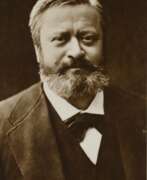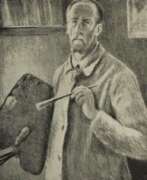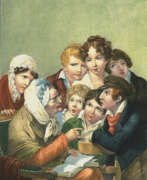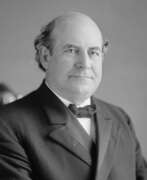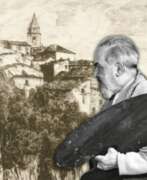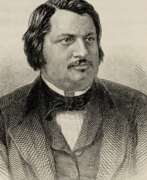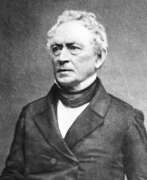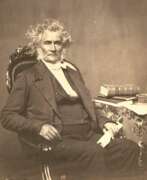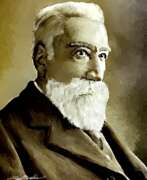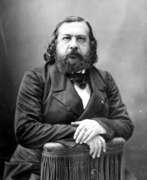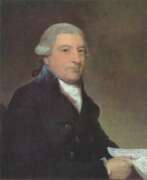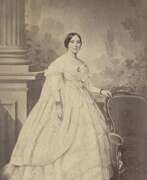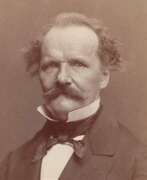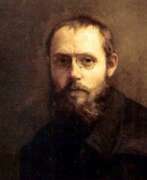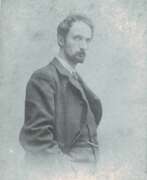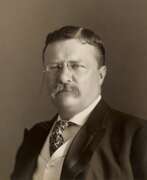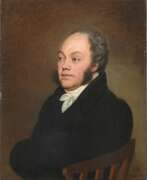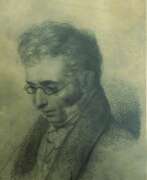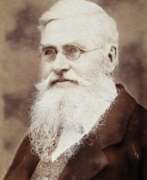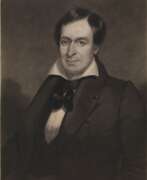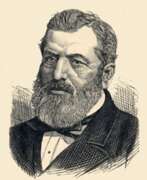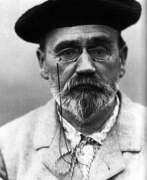Publicists 19th century
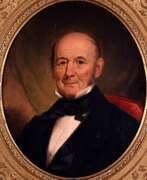

Abijah Bigelow is an American legislator, U.S. Representative from Massachusetts, poet and publicist.
Bigelow attended Dartmouth College in Hanover and became a lawyer. Between 1810 and 1815, he represented Massachusetts in the U.S. House of Representatives, where he strongly opposed the War of 1812. He also served as a justice of the peace from 1809 until his death.
As an author and poet, Bigelow published his work in Worcester newspapers throughout his life. Six essays entitled "Political Reflections" were published in the Massachusetts Spy in 1812, and a series of articles on slavery, signed by him as "The Unprofessional," were printed in the Worcester Palladium in 1838. Bigelow was also a member of the American Antiquarian Society.
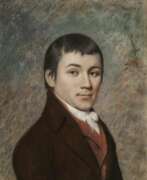

Charles Brockden Brown was an American writer, historian, and editor.
Brown took up literary endeavors early in life. In 1798, his first mystical and psychological novel, Wieland, was published. Brown also wrote the novels Ormond (1799), Edgar Huntley (1799), and Arthur Merwin (1799-1800).
Brown's works interweave fiction, history, fantasy, psychology, and liberal politics. Brown is considered the father of the American novel. His American-style Gothic novels pioneered and paved the way for two of the greatest early American writers, Edgar Allan Poe and Nathaniel Hawthorne.
Charles Brown also wrote a great deal of journalism on political, educational, and historical topics.
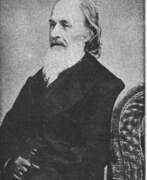

Solyman Brown was an American dentist, creator of the first U.S. National Dental Society and the first U.S. Dental Journal, as well as a poet and artist.
Brown received his bachelor's, master's, and doctor of medicine degrees from Yale University, and also worked as a minister. He wrote many articles explaining dental principles and regulations and became one of the editors of the American Journal and Library of Dental Sciences.
Essentially, in the 19th century, American dentistry was in a terrible state. And Solyman Brown, through all his activism, contributed to the enlightenment and establishment of dentistry in the United States as a true profession and science.
Brown also wrote poetry, articles and essays, and was constantly published in the periodical press. He gained fame and notoriety as a dental poet with his epic "Dentology, a poem on the diseases of the teeth and their proper remedies," which he wrote in 1833. And many more of his poems were devoted to dental diseases, their prevention and treatment. Soliyman Brown, in addition, was a painter and sculptor, painting portraits and creating furniture in wood.
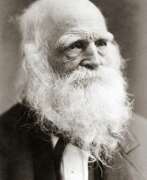

William Cullen Bryant is an American poet, journalist, and editor-in-chief of the New York Post.
He began his education at Williams College, then studied law and worked as a lawyer, but a very different fate awaited him. In 1825, he moved to New York City and became co-editor of the New York Review. In 1827 he became editor of the New York Evening Post, and in 1829 he became its editor-in-chief and co-owner.
Bryant remained in this position until his death, for 50 years. He made the Post a voice for free trade, workers' rights, free speech, and abolition of the death penalty, and he was a founding member of the Republican Party.
Bryant wrote poetry from his early youth and announced himself by publishing a book of Poems (1821). His main theme was nature, and his best-known poems are "Thanatopsis" and "To a Waterfowl." In later years he devoted much time to translations and was an active patron of art and literature.
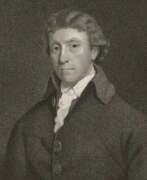

John Cartwright was an English naval officer, Nottinghamshire militia major and prominent campaigner for parliamentary reform. He subsequently became known as the Father of Reform. His younger brother Edmund Cartwright became famous as the inventor of the power loom.
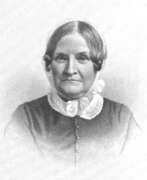

Lydia Maria Child, née Francis, is an American writer and journalist, women's rights and Indian rights activist, and a prominent abolitionist.
Lydia Francis was born into a family of abolitionists, which shaped her worldview. From the age of 18, she taught, wrote historical novels and in 1826 founded a periodical for children "Juvenile Miscellany".
Her first novel, Hobomock, was published in 1824 - set in colonial New England and based on the marriage of a white woman, Mary Conant, and a Native American named Hobomock. In 1833, Lydia Child published An Appeal in Favor of the Class of Americans Called Africans, which recounted the history of slavery and decried the educational and employment inequalities of the black population in the United States. As a result, she was expectedly publicly condemned and her magazine collapsed. But this book united and empowered like-minded people in the abolitionist movement.
On the subject of inequality, Lydia Child wrote throughout her life, and she also spoke out on behalf of Native American peoples. In 1861, "Incidents in the Life of a Slave Girl" was published. Her many books also include Flowers for Children (1844-47), Facts and Fictions (1846), The Freedmen's Book (1865), and An Address to the Indians (1868).
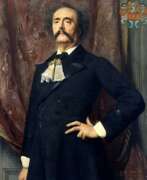

Jules Barbey d'Aurevilly, born Jules Amédée Barbey d'Aurevilly, was a French writer, critic and essayist.
After studying law at the University of Caen, d'Aurevilly gained popularity in 1852 as a literary critic for the Bonapartist newspaper Le Pays, which was influential among the decadents of the late 19th century.
In literature, d'Aurevillys specialized in tales of macabre mysteries that explored ulterior motives and hints of evil, but without the supernatural. He was a decisive influence on writers such as Auguste Villiers de l'Isle-Adam, Henry James, and Marcel Proust.
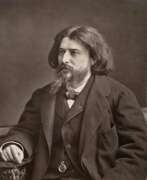

Alphonse Daudet was a French novelist and short-story writer, best remembered for his sentimental tales of provincial life in southern France. Born in Nîmes in 1840, Alphonse Daudet's early life was marked by financial hardship, influencing much of his later work. He moved to Paris with his brother Ernest and quickly immersed himself in the literary world, publishing his first collection of poems, Les Amoureuses, at a young age.
Alphonse Daudet's career flourished with notable works such as Le Petit Chose, Tartarin de Tarascon, and Lettres de Mon Moulin, which highlighted the charm and simplicity of rural life in Provence. His storytelling, often infused with humor and satire, made significant contributions to French literature, capturing the essence of Provencal culture.
Despite his literary success, Alphonse Daudet's personal life was fraught with challenges, including a long-term illness that he bravely depicted in his later works. He passed away in Paris in 1897, leaving behind a legacy celebrated for its profound impact on regionalist literature and its vivid portrayal of French life and culture during the 19th century.
For those interested in the intricate tapestry of French literature and the enchanting allure of Provence, Alphonse Daudet's works offer a gateway to the past, brimming with the richness of its regional heritage and the timeless appeal of its narratives. To delve deeper into Daudet's life and explore his contributions to literature, subscribing to updates on related sales and auction events can be a rewarding pursuit for collectors and enthusiasts alike, ensuring they remain informed about opportunities to engage with his enduring legacy.
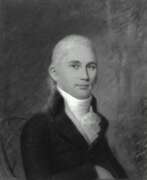

Joseph Dennie was an American writer, journalist, and major literary figure of the early 19th century.
Dennie graduated from Harvard College, became a lawyer, but became active in writing. In 1801, he founded a periodical called The Port Folio, which became the most prominent literary weekly of its time in America. It was also the first important political and literary journal in the United States.
As founder of the Tuesday Club, Dennie was the center of Philadelphia's aristocratic literary circle in the early 19th century and for a time was the leading literary critic in the country. He ridiculed the simplistic and crude nature of Native Americans and opposed democratic innovations. He also encouraged talented young writers.
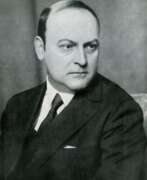

Léon-Paul Fargue was a French poet and novelist, journalist and publicist.
Léon-Paul studied at the Lycée Henry IV in Paris and as a young man became a member of the Symbolist circle associated with Le Mercure de France. His first collection of poems was published in 1912 and reprinted in 1918. After 1930, Fargue practiced journalism almost exclusively, writing newspaper columns and lyrical essays on Parisian life.
Léon Fargue's work encompasses various literary movements, being a kind of bridge from Symbolism to Surrealism. His work has also been associated with the Dadaists and the Cubists, but he followed his own path throughout his life. Fargue was among the founders of the Nouvelle Revue Française in 1912 and participated in the first issue of the surrealist journal Literature in 1919, and was one of the leaders of the experimental journal Commerce in the 1920s. Farg was friends with many writers, artists and composers, including Pablo Picasso and Igor Stravinsky.
In 1937, Léon-Paul Fargue was elected a member of the Académie Mallarmé, and in 1946 he won the Grand Poet Laureate of Paris.


Philip Morin Freneau was an American publicist, editor, and known as the "poet of the American Revolution".
After graduating from Princeton University, Freneau taught school and studied to become a minister. With the outbreak of the American Revolution, he began writing scathing satire on the British and the Tories. During a two-year voyage to the Caribbean islands, he created the poems "The Beauties of Santa Cruz" and "The House of Night," and in 1778 he became involved in the war. After his release from British captivity, Freneau wrote a book in verse, "The British Prison Ship" (1781).
After serving as a sea captain for several years, Freneau took up journalism. In his National Gazette newspaper in Philadelphia, he sharply criticized George Washington.
Freneau's poetry, which accompanied him throughout his life, covers a variety of subjects, including political situations, American Indians, nature, the sea, and naval battles. His political poems are often satirical, but his nature poems are very lyrical.
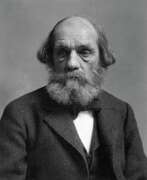

Edward Everett Hale was an American clergyman, preacher and writer, abolitionist and pacifist.
Hale demonstrated outstanding literary ability from an early age. He went to Harvard College and became a minister and preacher. Grandnephew of Revolutionary hero Nathan Hale and nephew of orator Edward Everett, Hale worked for his father's newspaper, the Boston Daily Advertiser. And for 70 years he never stopped writing newspaper articles, historical essays, short stories, pamphlets, and sermons for the North American Review, The Atlantic Monthly, and the Christian Examiner. From 1870 to 1875 he published and edited the Unitarian magazine Old and New.
Hale wrote several novels, of which the most popular were East and West (1892) and In His Name (1873). Hale's most famous novel, A Man Without a Country, first published in The Atlantic Monthly in 1863, was written to evoke patriotism during the Civil War. It is a political fable about a man who renounces his American citizenship and greatly regrets it.
Many of Hale's 150 books and pamphlets were tracts in support of the ideas of Negro education, worker's housing, and world peace. The moralistic novel Ten Times One is Ten (1871) was the impetus for the organization of several youth groups.
In 1847, Hale was elected a member of the American Antiquarian Society and remained a member for the rest of his life. A 10-volume collection of Edward Hale's writings was published between 1898 and 1900. In 1903 he was appointed chaplain of the United States Senate and joined the Literary Society of Washington. The following year he was elected a member of the Academy of Arts and Sciences.
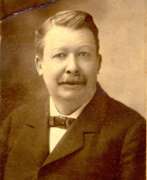

Joel Chandler Harris was an American journalist, Southern writer and folklorist, abolitionist, and author of Uncle Remus's Tales.
Joel was a very inquisitive and witty child, reading a great deal. From the age of 13 he worked as a typesetter and then as a reporter for several newspapers; in 1876 he became deputy editor at Atlanta Construction, where he worked for 24 years. As a journalist, Harris was an active abolitionist, advocating for black rights and against slavery.
At Atlanta Construction, Harris began publishing his now-famous Uncle Remus stories, using folklore he had heard from black workers on the plantation. These tales made Joel Harris famous and earned him a firm place in the classics of American literature. The general outline of the series of stories was simple: Uncle Remus, a wise and good-natured old black man, tells stories about Brother Rabbit, Brother Fox and other animals to the plantation owner's young son - through his prism of worldview.
Uncle Remus: His Songs and Sayings was first published in book form in 1880, and others followed. Harris also wrote six children's books set on a Georgia plantation, several novels and novellas.
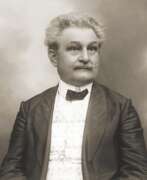

Leoš Janáček, birth name Leo Eugen Janáček, was a Czech composer and musicologist, folklorist, publicist and teacher.
Janáček was a singer in Brno, and studied at the Prague, Leipzig and Vienna Conservatories. In 1881 he founded the Collegium of Organists in Brno, which he directed until 1920. From 1881 to 1888 he directed the Czech Philharmonic Orchestra, and in 1919 he became professor of composition at the Prague Conservatory.
Janáček was deeply in love with national music, collecting folklore and publishing the journal Musical Pages. He was inspired by Moravian and other Slavic music, including Eastern European folk music, to create an original modern musical style.
In his early period of creativity, Janáček was strongly influenced by the musical style and aesthetics of his friend Dvořák. His first opera, Šarka (1887-88), was a romantic work in the spirit of Wagner and Smetana. In his later operas he developed his own distinctly Czech style, built on the intonations of his native speech and folk melodies. Janáček's most important operas are Jenůfa (1904) and Her Foster Daughter, which established the composer's international reputation; The Case of Macro Pulos (1926), From the Dead House (1930), and others. Most of Janáček's operas have been staged in Czech.
Janáček visited Russia three times, and his interest in Russian language and literature resulted in the opera Katya Kabanova (1921) and the orchestral rhapsody Taras Bulba (1918). Janáček also wrote a number of instrumental chamber works. The world-famous composer spent most of his life in Brno, where the vast majority of his works were performed for the first time. Today, Janáček is the most frequently performed Czech opera composer in the world.
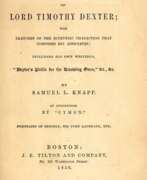

Samuel Lorenzo Knapp is an American author and lawyer and politician.
Knapp graduated from Dartmouth College and eventually became a prominent lawyer, holding a Juris Doctor degree. He was a representative in the Massachusetts legislature from 1812 to 1816, and in 1814 joined the American Antiquarian Society.
In 1824 Knapp became editor of the Boston Gazette and also kept the Boston Monthly Journal. In 1826 he founded the National Republican Party, which collapsed two years later, and returned to practicing law in New York City. Knapp published various biographical studies as well as many public discourses on politics and society.
In 1818 his fiction Ali Bey (Excerpts from a Journal of Travels in North America, consisting of descriptions of Boston and its environs) was published. It is a sort of diary of a fictional Ottoman spy who travels in America disguised as a Frenchman.
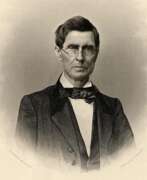

Augustus Baldwin Longstreet was an American politician, lawyer, educator, and writer.
Longstreet received a broad education: he attended Moses Waddell Academy in Willington, South Carolina, Yale University in New Haven, Connecticut, and Tapping Reeve Law School in Litchfield, Connecticut. He served as a Superior Court judge for the Okmulgee Judicial Circuit.
From his youth, Augustus was a prolific and active publicist. In September 1835, Longstreet published his most famous book, Scenes, Characters, Incidents in Georgia, to which poet Edgar Allan Poe gave a rave review. He later published political and religious articles. As owner and editor of the State Rights Sentinel newspaper, he used this platform to express his political views, especially in defense of slavery. Longstreet held slaveholding and secessionist views, personally owning dozens of slaves throughout his life.
Longstreet also served as president at several southern universities, including the University of Mississippi, South Carolina College (now the University of South Carolina), and Emory College (now Emory University).
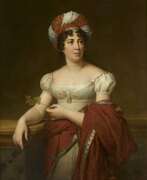

Anne-Louise-Germaine Necker, Baroness of Staël-Holstein, known as Madame de Staël, was a French writer, literary theorist, and publicist.
She was born into a Swiss family where her father was a banker and then finance minister to King Louis XVI, and her mother ran a brilliant literary and political salon in Paris where Voltaire, Diderot, and Hume frequented. Young Necker received a brilliant education, she absorbed the intellectual environment with great curiosity, becoming a witty and well-read conversationalist.
In 1786, she married the Swedish ambassador to Paris, Baron Eric de Staël-Holstein. It was a marriage of convenience, which ended in 1797 formal divorce.
Madame de Staël became known not only for her stunning and versatile works, but also for her enormous influence on the intellectual climate of that 19th century. During her lifetime she was known as a novelist, but she became much more famous as a political philosopher, literary critic, and theorist of Romanticism. Madame de Staël was an implacable opponent of Napoleon I and traveled around Europe for a decade during his reign from 1803. In 1810, the writer published one of her most famous and influential works, On Germany. She returned to Paris in 1814, after the fall of Napoleon, and wrote "Reflections on the Principal Events of the French Revolution."
In her travels, Madame de Staël met many politicians, artists and writers and was known for her cosmopolitanism and feminism. Madame de Staël epitomized the European culture of her time, combining ideas from neoclassicism to romanticism in her glittering salon for leading intellectuals.
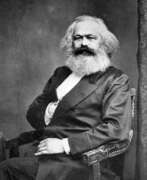

Karl Marx, full name Karl Heinrich Marx, was a German philosopher, sociologist, historian and economist, social activist, and journalist. One of the most significant political figures in the world, his works have had a great influence on the course of human history.
Karl Heinrich Marx was born into a large Jewish family of rabbinic dynasty, but his father and Karl himself were baptized. The young Karl received a liberal arts education at the University of Bonn and the University of Berlin and was actively involved in the turbulent political life of Germany and France in the 19th century. For his political activities in 1849 he was expelled from Germany, moved with his family to Paris and then to London, where he lived and worked until the end of his life.
In 1844 he met the German socialist Friedrich Engels, who became his friend and collaborator for the rest of his life. Together they had already published the Manifesto of the Communist Party (1848), the most famous pamphlet in the history of the socialist movement. Karl Marx was also the author of the movement's most important book, Das Kapital (Capital). These and other writings of Marx and Engels formed the basis of the system of views and beliefs known as Marxism.
Marx examined the very different versions of socialism that existed in the early nineteenth century and combined them into a doctrine that remained the dominant version of socialism for half a century after his death. His emphasis on the influence of economic structure on historical development was of enduring importance.
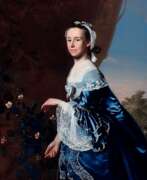

Mercy Otis Warren was an American poet, satirist, playwright, historian, and essayist of the American Revolution.
Mercy Otis was born into a prosperous Cape Cod Island family and was immersed early in the tumultuous political events taking place in the country at the time. One of her brothers was political activist James Otis, who was involved in the American Revolution from the beginning. In 1754, Mercy Otis married farmer James Warren, who later served in the Massachusetts legislature (1766-78). Through her husband's political connections, Warren was personally acquainted with most of the leaders of the Revolution and was constantly at the center of events for more than two decades.
Combining her own convictions with her writing talent, Warren became a poet and historian of the revolutionary era. Her first incisive and polemical pieces in verse were published in a Boston newspaper. This was followed by the prophetic novel Defeat and other works. In 1790 she published a collection of her works, Poems, Dramatic and Miscellaneous, which included two new plays, The Sack of Rome and The Ladies of Castille. For a woman of the time, such publications were very daring, as female writers usually hid under pseudonyms.
Warren also corresponded extensively with politicians, including George Washington and Thomas Jefferson. In 1805, she completed a three-volume work entitled A History of the Rise, Progress, and Termination of the American Revolution. This book was the earliest work on historical events in the country. Its proximity to political leaders and major national events makes Mercy Warren's writings on the American Revolutionary period especially valuable.
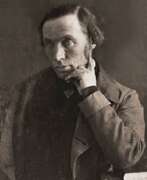

Robert Dale Owen was a British-born American social reformer and political activist, newspaper editor and writer.
The son of English reformer Robert Owen, Robert Dale Owen was imbued with socialist philosophy in the Scottish town of New Lanark, the elder Owen's model industrial community. In 1825, father and son emigrated to the United States, where they founded a successful socialist community in New Harmony, Indiana.
Robert Dale Owen edited the New Harmony Gazette, worked with reformer Fannie Wright, visited Europe, then edited the Free Enquirer newspaper. This newspaper was the center of radical free thought in New York City: it opposed evangelical religion, advocated more liberal divorce laws, a more equal distribution of wealth, and widespread industrial education.
Owen served three terms in the Indiana legislature, where he advocated public funds for public schools, and two terms in the U.S. House of Representatives, where he introduced a bill to establish the Smithsonian Institution. For several years in the 1850s, Owen represented the United States as a diplomat in Naples and Italy. Upon his return in 1858, he became an outspoken supporter of emancipation. And at the outbreak of the American Civil War, in a letter to President Lincoln, he called for an end to slavery, a letter that Treasury Secretary Salmon Chase said greatly influenced the president.
In 1863, Owen chaired a committee to study the plight of the freedmen and wrote the book The Wrongness of Slavery. The town of Dale, Indiana, is named in Owen's honor.
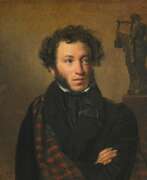

Aleksandr Sergeevich Pushkin (Russian Александр Сергеевич Пушкин) was a Russian poet, playwright and prose writer who laid the foundations of the Russian realist movement, literary critic and literary theorist, historian, publicist and journalist.
Pushkin was born in Moscow into an aristocratic family. From childhood he showed a unique literary talent and passion for words. His first poems were written in his school years, and since then his path became inseparable from the world of literature.
One of Pushkin's most famous works is Eugene Onegin, a magnificent novel in verse that plumbs the depths of the human soul and explores many themes such as love, friendship, art and society. In this work, Pushkin created an unrivaled image of the Russian aristocrat and poet, Eugene Onegin. Pushkin was also a master of lyric poetry, writing many ineffably beautiful poems that expressed the feelings and emotions of people in a variety of situations. His poems about love, nature and homeland remain eternal and inspire new generations of poets.
Aleksandr Sergeevich Pushkin was a Russian poet, playwright and was also a public figure and a man with a wide outlook. He published articles in which he expressed his opinion on social and political issues of his time. His passion for freedom and justice was always evident in his works and in his life.
Aleksandr Sergeevich Pushkin died on February 10, 1837 as a result of a duel, but his work remains alive and eternal. His literary legacy has left an indelible mark on world literature, and his work continues to inspire fans around the world.
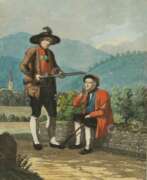

Johann Ludwig Christian Rheinwald was a German civil servant and archivist.
Rheinwald prepared and published two series depicting various regional costumes of Bavaria. Rheinwald enlisted the services of a local German artist and engraver, Ludwig Neureuther, who drew and engraved sheets depicting typical outfits of local Bavarian men and women.
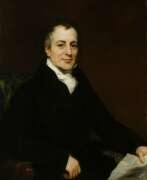

David Ricardo was a British economist and a classic of political economy.
David's father, a stockbroker, came from a Jewish family and emigrated from Holland to England in the early 1770s. After his studies, young David was hired by the London Stock Exchange and worked with his father, but at the age of 21 he broke away from his family. He soon started his own business as a dealer in government securities and became rich very quickly. At the age of 27, Ricardo became seriously interested in economics and from 1809 began to publish articles in the press on topical issues of currency and economics. He met the economist James Mill, who became his political and editorial adviser. He also befriended the utilitarian philosopher Jeremy Bentham and Thomas Malthus.
Ricardo's major work was On the Principles of Political Economy, and Taxation, published in London in 1817. It was a fundamental contribution to economic science and the first systematized approach to the subject. In this work, Ricardo addresses the "main problem of political economy," defined as determining the laws governing the "natural course of rents, profits, and wages" over time. He also develops ideas advanced in Adam Smith's The Wealth of Nations (1776), outlining a new labor theory of value, as well as theories of international competitive advantage and the effects of taxation. Ricardo was the first to formulate the "classical" system of political economy, and his ideas dominated economic thought throughout the 19th century.
By the age of 41, David Ricardo had completely retired from business and began to lead the quiet life of a gentleman and landowner on his estate. In 1819, Ricardo was elected to the British Parliament as an independent representative of a district in Ireland.
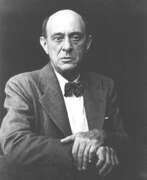

Arnold Schoenberg, real name Arnold Franz Walter Schönberg, was an Austrian and American composer, representative of musical expressionism, teacher, musicologist and conductor.
Schoenberg came from a Jewish family and began studying the violin at the age of eight and later the cello. While working as a bank clerk, he simultaneously studied composition with Alexander Zemlyansky (1871-1942) and soon wrote his first string quartet (1897) to acclaim. With the help of Richard Strauss, he obtained a teaching position in Berlin, and lived for a time in two cities. In 1904, Alban Berg and Anton Webern began studying with Schoenberg, and this largely determined their future artistic careers.
Around 1906, through much experimentation, Schoenberg came to the conclusion that tonality should be abandoned. He created new methods of music-making and composition involving atonality. In the subsequent period of "free atonality" from 1907 to 1916, he composed the monodrama "Reason", "Five Orchestral Pieces", "Pierrot Lunaire" and other works.
In 1933, due to the rise of National Socialism in Germany, Schoenberg was expelled from the country and emigrated to the USA, in 1941 he took American citizenship and taught at the University of California at Los Angeles until 1944. The works of this period demonstrate the composer's ever-increasing skill and freedom in the use of the 12-tone method.
Although Schoenberg was never accepted by the general public, he nevertheless had a significant influence on 20th century music, being the founder of the New Viennese School of Composition.
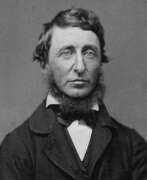

Henry David Thoreau is an American writer and poet, philosopher and publicist. He was a prominent representative of American transcendentalism, a friend and associate of Ralph Waldo Emerson.
Henry studied at Harvard University, where he met Ralph Waldo Emerson, the future founder of American Transcendentalism. Thoreau saw Emerson as a guide, a father and a friend. Under his guidance, Henry began to publish his poems and essays with increasing confidence.
In the early spring of 1845, the 27-year-old Thoreau began a new life: he chipped a cabin for himself on the shore of Walden Pond, ate very moderately and meditated. He also read and wrote "A Week on the Concord and Merrimack Rivers," then published in 1849. What eventually emerged was a series of 18 essays called "Walden," describing Thoreau's experimentation with the basics of life. Thoreau's clear and elegant style of presentation brought this work to the level of a literary classic.
Thoreau lived according to the doctrines of transcendentalism recorded in his masterpiece Walden (1854) for two years, and then left the cabin. But life around him had already changed, and little by little his moods began to change as well. Thoreau began to move away from transcendentalism, became more involved in public life, and became a committed abolitionist.
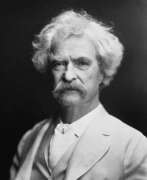

Mark Twain, real name Samuel Langhorne Clemens, was an American humanist writer, journalist, and social activist.
As a young man, Samuel worked in the printing press and in the gold mines, then went on a steamboat trip to Europe and the "Holy Land". His travel letters, full of vivid descriptions and ironic observations, were very well received by the public and were later revised into his first book, Innocents Abroad, published in 1869.
The pseudonym "Mark Twain" first appeared in 1863 under one of Samuel Clemens' short stories, and since then all his significant works have been signed by that name.
A talented storyteller, a peculiar humorist and moralist, Twain knew and loved his many diverse characters. His scandalizers and dreamers, caring aunts and ambitious politicians, grumpy widows and lying aristocrats, cunning but generous slaves, sentimental moralists, brave and naive children - all these types of American people Twain gave voice to thanks to his masterful command of colloquial language, slang and jargon. Twain wrote a lot and in a variety of genres: humor and satire, philosophical fiction and journalism and others, but he always stood on the position of humanist and democrat.
Mark Twain became world famous for his travel stories and adventure novels about his childhood, these are "The Adventures of Tom Sawyer" (1876) and "The Adventures of Huckleberry Finn" (1885). Twain is still one of America's, and indeed the world's, best and most beloved writers. His works have been and are still being published in many languages around the world.
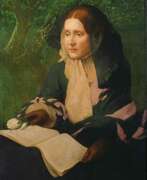

Julia Ward Howe is an American writer and poet, philosopher, abolitionist, and feminist.
Born into a well-to-do family and privately educated, Julia Ward married educator Samuel Gridley Howe and settled in Boston. She published her first collection of poems, Passionate Flowers, in 1854.Julia's early poems were praised by Hawthorne, Whittier, and Longfellow for their intellectual intensity. For a time Howe published the abolitionist newspaper Commonwealth with her husband. And in February 1862, The Atlantic Monthly published her poem "Battle Hymn of the Republic," which became the semi-official Civil War song of the Union Army, and Howe gained fame.
After the war, Howe began fighting for women's rights. In 1868, she was elected the first president of the New England Women's Suffrage Association. In 1868, she helped found the New England Woman's Club and became its president in 1871, the same year she became the first president of the American branch of the International Women's Peace Association. She was later active in the International Federation of Women's Clubs. Howe continued to write throughout her life, publishing travel books, poems, collections of essays, and biographies.
In 1870, she co-founded Woman's Journal and then served as its editor for 20 years. She traveled extensively until her advanced old age. In 1908, she became the first woman elected to the American Academy of Arts and Letters.
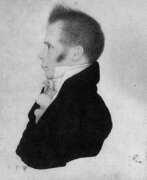

George Watterston is an American politician, author and journalist.
He graduated from the Charlotte Hall Military Academy with a law degree. But, apparently, he soon became so disappointed in the profession that he began to write poetry and prose, in which he portrayed lawyers in a very unsightly form. His first novel "The Lawyer, or The Man as he ought not to be" Watterston published in 1808. This poignant novel is ostensibly a confession of a corrupt lawyer and seducer in the spirit of Stephen Burroughs' Memoirs of Stephen Burroughs. Watterston's ironic take on the didactic novel straddles the line between Charles Brockden Brown's gothic thrillers and dark comedy. He also wrote the novel Glencarne or the Disappointments of Youth (1810), the play Child of Sentiment (1809), and the poem Scenes of Youth (1813), among others.
After the end of the War of 1812, President James Madison appointed Watterston as Librarian of Congress, the third person to hold the position and the first to be solely responsible for it. He held the position from 1815 to 1829.
In 1813, Watterston became editor of the Washington City Gazette. And after his dismissal from Congress, he became editor of the National Journal. He continued a productive literary and journalistic career until his death.
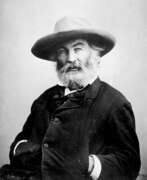

Walt Whitman was an American poet and essayist.
For some time in his youth Whitman worked as a journalist and even published his own newspaper, where he raised issues of slavery. In 1855, he self-published a collection of his poems, Leaves of Grass. This book is now a milestone in American literature, although at the time of publication it was considered highly controversial. In the early 1860s, Whitman volunteered in hospitals for the Civil War, resulting in a collection of new poems.
During his lifetime, his first collection, Leaves of Grass, underwent many editions and grew to 300 poems. It was only towards the end of his life that Whitman found fame as the first national poet of the United States. Whitman was translated into Russian by K. Balmont, I. Kashkin, and K. Chukovsky.
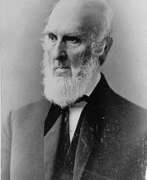

John Greenleaf Whittier was an American poet, essayist, and member of the American Anti-Slavery Society.
Whittier devoted 30 years of his life to the fight against slavery. Only after the Civil War, already at a mature age, he was finally able to engage in his favorite pastime - poetry. Past his fascination with Burns, Whittier became an eloquent advocate of justice, tolerance, and liberal humanism. He has been called "America's finest religious poet" for the high spiritual and moral values he extolled, and many of his poems are still sung as church hymns.
Whittier also wrote about the region's past, about life in New England before industrialization. In late nineteenth-century America, Whittier was second only to Henry Wadsworth Longfellow in popularity. His most famous poem, "Bound by Snow," was published in 1866. Whittier was also a longtime editor of the New England Weekly Review.
